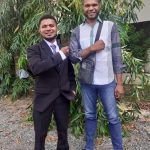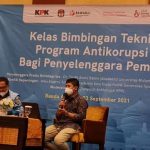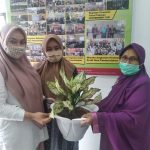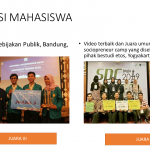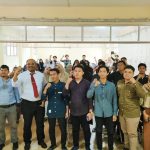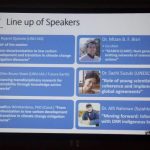Dr. Alfi Rahman, one of our lecturers (Department of Governmental Science of Syiah Kuala University) and also a researcher at the Tsunami and Disaster Mitigation Research Center (TDMRC) Syiah Kuala University, was delighted to be visiting the Center for Southeast Asian Social Studies (CESASS), Gajah Mada University. The visit took place from September 17 to 21, 2018 with an aim to strengthen research collaboration on social perspectives between Unsyiah and the institution.
Dr.phil. Hermin Indah Wahyuni, the Director of CESASS, welcomes warmly the potential of future research collaboration in social sciences. She emphasized that the ongoing partnership between the two institutions needs to be strengthened and developed.
At CESASS, Dr. Alfi had a few main agendas. First, he sat with CESASS team to discuss the issues and challenges faced by researchers in social sciences. It was concluded that inter-institution and interdisciplinary collaboration is important to strengthen research in the social field. Based on the contexts of both institutions (Unsyiah and UGM), the themes that are suitable for development in the forms of joint research, workshops, and seminars are disaster, climate change, and environment. These topics are deemed relevant to the disaster prone conditions of Indonesia.
Dr. Alfi also gave a guest lecture on disaster risk management at the Department of Politics and Government, Faculty of Social and Political Sciences of UGM. In addition,he was invited to speak at CESASS’s monthly scientific discussion (SEA-TALK) about “Communicating Disaster Risk in Enhancing Community Resilience: Lesson Learned from Simeulue Island, Aceh, Indonesia”. The talk was held at CESASS library on September 21, 2018 and was attended by postgraduate students, researchers, teachers, and both local and international activists.
The discussion dived into the role of local and indigenous knowledge in disaster risk reduction in Indonesia. More specifically, the forum talked about how local and indigenous knowledge in Simeuluean communities saved them from the massive tsunami in 2004. Among the important note from this discussion is that Indonesia has a lot of local knowledge that governs how people adapt to the nature, including dealing with hazards. Another important take away is that interactions among researchers is needed to study all the local knowledge stored among the societies, and in turn contribute to the country’s DRR in the future.


